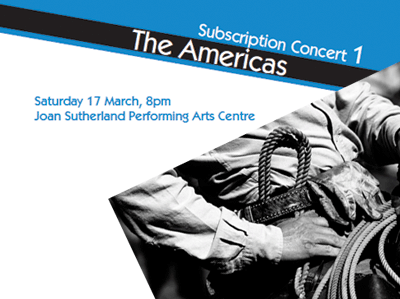
Paul Terracini | conductor
Jenny Liu | soprano
Kaine Hayward | baritone
STRAVINSKY Circus Polka
COPLAND Variations on a Shaker Melody (from Appalachian Spring)
COPLAND Billy the Kid Suite
GERSHWIN, GREEN, FAIN, JENKINS Classic songs from the 1930s
GINASTERA Suite Estancia
Many strands of North and South American musical tradition are brought together in this rich and varied program. Aaron Copland, often described as the quintessential American composer, is heard in two orchestral works derived from ballet scores originally for much smaller forces. Stravinsky, on the other hand (a Russian émigré who adopted the United States as his homeland), wrote his Circus Polka for a circus ballet performance involving 50 elephants and 50 ballerinas! No musical overview of the Americas would be complete without tribute to the jazz and popular song traditions of the 1930s, as heard here in Gershwin standards including Summertime and songs by Johnny Green, Sammy Fain and Gordon Jenkins. The ballet suite Estancia by Argentinian composer Alberto Ginastera (a student of Copland), exemplifies the composer’s integration of Argentinian folk idiom into his modern classical style.
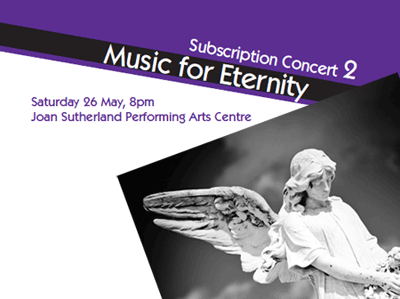
Paul Terracini | conductor
Cowley Fu | piano
Matthew Phillips | boy soprano
Alexander Knight | baritone
Penrith City Youth Choir
Penrith City Choir | Lucy McAlary, Director
RIMSKY-KORSAKOV Russian Easter Festival Overture
SAINT-SAËNS Danse Macabre
LISZT Totentanz
FAURÉ Requiem
Four great composers, four vastly different perspectives on eternity. Drawing on melodies from Russian Orthodox liturgical chant, Rimsky-Korsakov (himself a non-believer) portrays a transition from the solemnity of Passion Saturday to the celebration of Easter morning. In Danse Macabre, Death (represented by a diabolical fiddle) calls the dead from their graves at midnight each Halloween to dance their nocturnal dance of death. Totentanz is one of many works inspired by Liszt’s morbid fascination with death, an obsession which is said to have led him to frequent hospitals and prisons to observe those condemned to die. Fauré’s setting of the Roman Catholic Mass for the Dead, with its sublime “Pie Jesu”, concludes the concert with an altogether more serene and uplifting view of eternity.
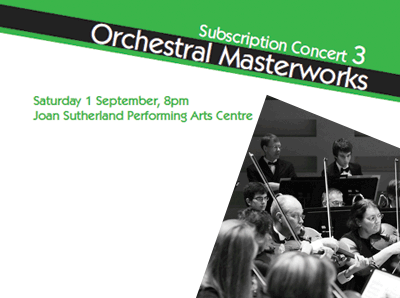
Paul Terracini | conductor
David Pereira | cello
BEETHOVEN Egmont Overture
SAINT-SAËNS Cello Concerto No 1 in A minor
MENDELSSOHN Symphony No. 4 in A major (Italian)
Beethoven’s Egmont overture was composed as part of incidental music for Goethe’s play of the same name, commemorating the heroic sacrifice of a sixteenth-century Flemish nobleman whose execution for opposing political oppression sparked the national uprising that eventually led to the independence of the Netherlands. The first cello concerto of Saint-Saëns also defied convention (albeit with much less cataclysmic consequences!) when the composer eschewed traditional three-movement concerto form in favour of a continuous structure and playful dialogue between soloist and orchestra. Mendelssohn’s “Italian” Symphony, despite his lifelong dissatisfaction with the score, is one of his liveliest and most popular works, eloquently evoking the sunlight, jubilance and dance rhythms of Italy that he so enjoyed during his Grand Tour of Europe.
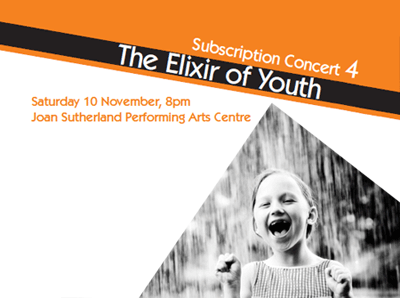
Paul Terracini | conductor
Michael Kieran Harvey | piano
Repeat performance at Camden Civic Centre, Sunday 11 November, 4.00pm
Precocious compositional talent is to the fore in a program featuring three works conceived by composers under 26. In Soirées Musicales, based on piano pieces by Rossini, Britten already gives a glimpse of the masterly orchestration that would become his hallmark. Rhapsody in Blue, originally written for solo piano and jazz band almost 20 years before the version most often performed today, was controversial in its fusion of classical and jazz elements but has become an enduring favourite in the symphonic repertoire. Andrew Howes, the inaugural recipient of a commission under the Penrith Symphony Orchestra Support for Young Composers Scheme, is attracting attention as one of Australia’s most gifted young composers. Alongside these three striking, youthful works, Tchaikovsky’s fourth symphony stands as one of the mighty pillars of the nineteenth-century orchestral literature.
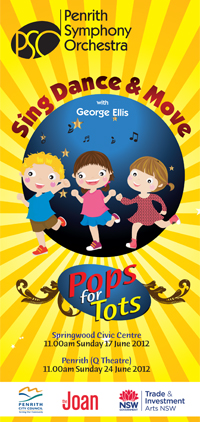
Sunday 17 June 2012, 11.00am
Springwood Civic Centre, Springwood
Sunday 24 June 2012, 11.00am
Q Theatre, Penrith
George Ellis | conductor
A musical entertainment for children 3 to 7 years old, conducted and presented by George Ellis.
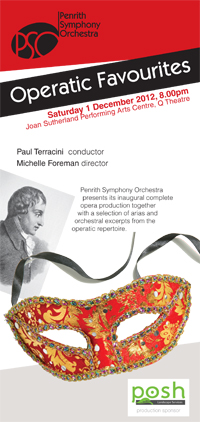
Paul Terracini | conductor
Michelle Foreman | Director
Jenny Liu| soprano
Alexander Knight | bass
PERGOLESI La serva padrona
Penrith Symphony Orchestra presents an evening of opera that includes its first staged production of a complete small-scale opera, as well as a selection of arias and orchestral excerpts from the operatic repertoire.
The soloists are from The Sydney Conservatorium of Music Opera School, one of Australia’s leading training grounds for the vocal and stagecraft skills of future generations of opera singers. This performance will showcase the artistry of several of the finest young performers from this program.
Pergolesi’s La serva padrona (The Servant Turned Mistress) is a milestone in “opera buffa” or comic opera. It was originally written as an intermezzo to his more serious “opera seria” Il prigionier superbo (The Proud Prisoner). The two works were premiered together in Naples in 1733. The composer was just 23 years old.
Il prigionier superbo was unsuccessful in its day and did not find a lasting place in the operatic repertoire. La serva padrona, on the other hand, went on to enjoy fame throughout Europe long after Pergolesi’s premature death at the age of 26, and has come to be regarded as a pivotal work in the transition from Baroque to Classical opera.
With only two singing characters (a master and his maid) and one silent role (his servant), the 45-minute work is an archetypal farce, complete with the deception and disguise for which opera is renowned. The arrogant maid schemes to trick her master, an elderly bachelor, into marrying her so that she becomes the true mistress of the household. This light-hearted and engaging work is a masterpiece in miniature.
Complementing the Pergolesi on the program will be several of the most beautiful and popular arias from Classical and early Romantic operas by Mozart, Rossini and Donizetti. Love, comedy and melodrama will be the order of the day as these fine young operatic singers strut their stuff.